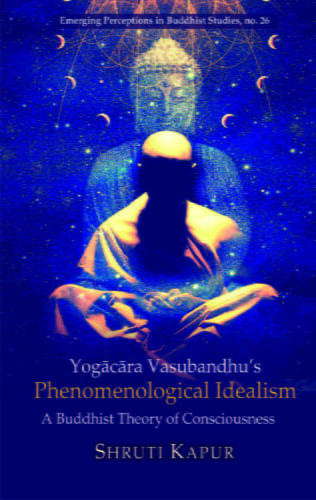

Yogacara Vasubandhu�...
Yogacara Vasubandhu’s Phenomenological Idealism
A Buddhist Theory of Consciousness by: Shruti KapurThis book is a comparative study of the phenomenology of Yogacara Vasubandhu and that of the German philosopher Edmund Husserl having the focus on the understanding of the deeply inner nature of consciousness or mind. It asserts that the Yogacara philosophy is much richer and comprehensive than the Western phenomenology, particularly the Husserlian phenomenology.
Original price was: ₹1,250.00.₹1,125.00Current price is: ₹1,125.00.
ISBN: 9788124611586
Year Of Publication: 2022
Edition: 1st
Pages : xxii, 305
Bibliographic Details : Bibliography, Index
Language : English
Binding : Hardcover
Publisher: D.K. Printworld Pvt. Ltd.
Size: 23
Weight: 580
This book is a comparative study of the phenomenology of Yogacara Vasubandhu and that of the German philosopher Edmund Husserl having the focus on the understanding of the deeply inner nature of consciousness or mind. It articulates that the Yogacara philosophy is much richer and comprehensive than the Western phenomenology, particularly the Husserlian phenomenology.
Later Vasubandhu’s philosophical orientation was idealist in Indian sense or a phenomenologist in Husserlian sense. His Mahayana Yogacara idealism is based on Asanga’s seminal text Sandhinirmocanasutra and his own Vijnaptimatratasiddhi (Vimsatika and Trimsika together) along with his exploration of the intrinsic theory of consciousness or mind. For one to have a clear-cut understanding of Vasubandhu, the book follows the Husserlian phenomenological approach as a philosophical methodology and also used select terminology wherever required.
This book is expected to be highly useful for students, researchers and teachers in the area of Indian/Buddhist philosophy.
This book is a comparative study of the phenomenology of Yogacara Vasubandhu and that of the German philosopher Edmund Husserl having the focus on the understanding of the deeply inner nature of consciousness or mind. It asserts that the Yogacara philosophy is much richer and comprehensive than the Western phenomenology, particularly the Husserlian phenomenology.
Preface
Abbreviations
1.Introduction: A Historical Transition of Vasubandhu’s Philosophy
Buddhism: An Overview
An Introduction to Vasubandhu
Vasubandhu’s Formative Years
Controversy Pertaining to Vasubandhu’s Teachers
Nature and Classification of Dharmas
List of Conditioned Elements of Existence (Samskrta Dharmas)
List of Unconditioned Elements of Existence (Asamskrta Dharmas)
Reason for Vasubandhu’s Shift from Hinayana to Mahayana
The Early Buddhist Literature (Sutra/Sutta)
Causality: The Fundamental Doctrine of Buddhism
Meaning of the Term Vinnana (Vijnana)
Kinds of Vinnana
Vinnana as Underlying Sentience or Consciousness
Vinnana as Cognitive Consciousness
Causal Interrelatedness between the Twin Aspects of Vinnana
Dharma (Dhamma): Its Varied Meanings in Buddhism
Meaning of the Term Abhidharma (Abhidhamma)
The Mission Plan of Abhidharma
Abhidharma Literature (Scholastic Treatises)
Theravada Abhidhamma
Sarvastivada Abhidharma
Abhidharmakoaa: Its Meaning and Contents
Sarvastivada–Vaibhasika School: All-Exists-Theorists
Literature of Sarvastivada School
The Doctrines Floated by the Sarvastivadins
The Theory of Possession or Ownership (Prapti)
The Doctrine of Momentariness in Sarvastivada School
Four Kinds of Sarvastivadins
Dharmatrata
Ghosaka
Vasumitra
Buddhadeva
Sautrantika (Darstantika) School
Doctrines Propounded by the Sautrantikas
The Doctrine of Momentariness
The Theory of Seed (Bīja)
A Glance at the Three Different Philosophical Perspectives of Vasubandhu
Vasubandhu: A Sarvastivada–Vaibhasika and Sautrantika
Vasubandhu: A Yogacara–Vijnanavadin
2. A Philosophical Debate between Yogacara Vasubandhu and the Buddhist Realists
Preamble
Objection 1: Spatial Regularity (Desa-niyama)
Reply
Objection 2: Temporal Regularity (Kala-niyama)
Reply
Objection 3: Public Shareability and Causal Continuity (Santana-niyama)
Reply
Objection 4: Functional Causal Action
(Krtya-kriya-niyama)
Reply
An Evaluation of Vasubandhu’s Arguments
Vaibhasika’s Realist Response
Yogacara Vasubandhu’s Response
Vaibhasika’s Realist Response
Yogacara Vasubandhu’s Response
Vaibhasika’s Realist Response
Yogacara Vasubandhu’s Response
Vaibhasika’s Realist Response
Yogacara Vasubandhu’s Response
Sautrantika Position
Yogacara Vasubandhu’s Objection
Sautrantika Reply
Yogacara Vasubandhu’s Response
Sautrantika Reply
Yogacara Vasubandhu’s Response
Upapadukasattvadesana
Abhipraya
Prayojana
Badhaka-pramana
Agama Badha
Yukti Badha
Discourse on the Twelve Sense Spheres (Ayatana) Abhipraya
Sautrantika Questions
Vasubandhu Explains Ayatana Desana
Vijnaptimatrata Desana
3. Nature and Modes of Consciousness in the Trimsika
Introduction
Significant Key Questions
Meaning and Classification of Consciousness (Vijnana) Traditional Buddhist Classification: Early Abhidharma Classification of Consciousness by Yogacarin Asanga and Vasubandhu
Three-layered Structure of Consciousness
Storehouse Consciousness (Alaya-vijnana): The First Transformation
Etymological Roots of Alaya
Various Translations of Alaya-vijnana
Three Interpretations of Alaya-vijnana
Four Aspects of Alaya
Nature of the Five Omnipresent Factors
Svarupa/Svabhāva of Alaya-vijnana
Contribution of Alaya-vijnana Principle to Vijnanavada
Alaya-vijnana: Its Active and Passive Modes
Cessation (Nivr̥tti) of Alaya-vijnana
Alaya-Vijnana vs Absolute Flow of Consciousness
Thinking Consciousness (Mano–nama-vijnana): The Second Transformation
Four Aspects of Ego Consciousness
Cessation (Nivrtti) of Klista-manovijnana
Active Consciousness (Pravr̥tti–vijnana): The Third Transformation
Mind and Mental Concommitants (Citta and Caitta or Caitasika)
Metaphors of “River” and “Ocean”
Reciprocal Relationship between Alaya–vijnana and Pravrtti–vijnana
The Internal Consciousness (Manovijnana)
Refutation of Eternalism (Sasvatanta)
Criticism of Externalist Realist
Refutation of Annihilationism
(Ucchedanta, Apavadanta)
4. Vasubandhu’s Theory of Trisvabhava
Introduction
The Three Natures of Consciousness (Trisvabhāva)
The Imagined Nature (Parikalpita Svabhava)
The Dependent Nature (Paratantra Svabhava)
The Consummate Nature (Pariniṣpanna Svabhava)
Interrelatedness between the Three Natures of Consciousness
Theory of Trilaksana in the Sandhinirmocanasutra
Simile of the Classical Indian Roadside Magic Show
Vasubandhu Explains Nihsvabhavata
Vasubandhu’s Tri-nihsvabhava Theory
The Path of Purification or Perfection (Ksanti)
Laksana Nihsvabhavata
Utpatti Nihsvabhavata
Paramartha Nihsvabhavata
5.Variety of Idealism: Western and Indian
What Is idealism?
Mind-boggling Views of Idealism
Plato’s Idealism
Descartes’ Problematic Idealism
Metaphysical Theory
Privileged Epistemic Position of Mind
Wax Analogy: Melting of the External Object
Representation Theory of Sense Perception
External Things: “A Great Propensity to Believe” Argument
Berkeley’s Idealism
What Is the Treatise All About?
Argument against Materialism
The Master Argument
Rejection of the Theory of Abstraction
Kant’s Transcendental Idealism
Kant’s Refutation of Idealism
Husserl’s Direct Realism-cum-Transcendental Idealism
Realist-Idealist Controversy about Husserl
Transcendental Idealism of Vedanta
Synthesis of Realism and Idealism in the Brhadaranyaka Upanisad
Sankara’s Strong Sense of Philosophical Idealism
6. Phenomenology of Consciousness: A Comparative Study of Yogacara Vasubandhu and Husserl
Is Yogacara Vasubandhu a Phenomenologist?
What Does Phenomenology Mean?
Human Life as an Embodied Consciousness
Vasubandhu’s Thought-continuity and Methodology
Denial of the Duality within Experience
Two-tiered Hermeneutic Strategy
Vijnapti Matra and Nirvanic Freedom
The Problem of Temporal Synthesis and Continuity
Vasubandhu
Phenomenological Modes of Consciousness
Husserl on Temporal Synthesis and Continuity
7. Conclusion: A Critical Estimate
Bibliography
Index



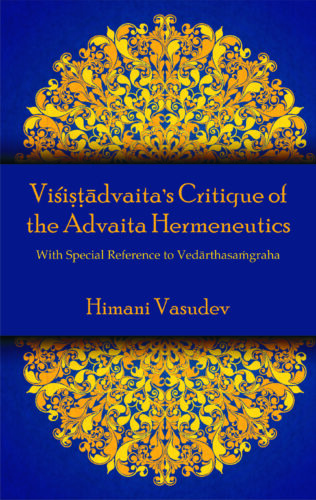

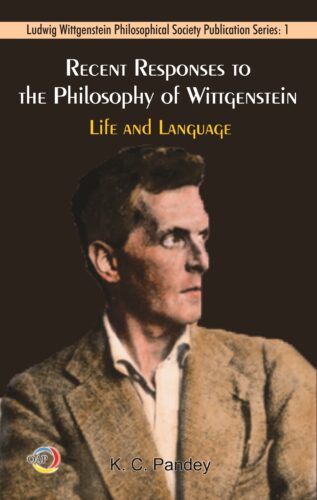
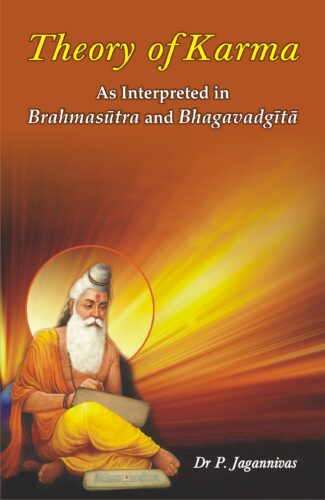
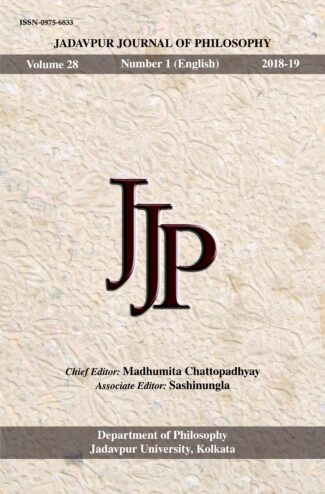
There are no reviews yet.